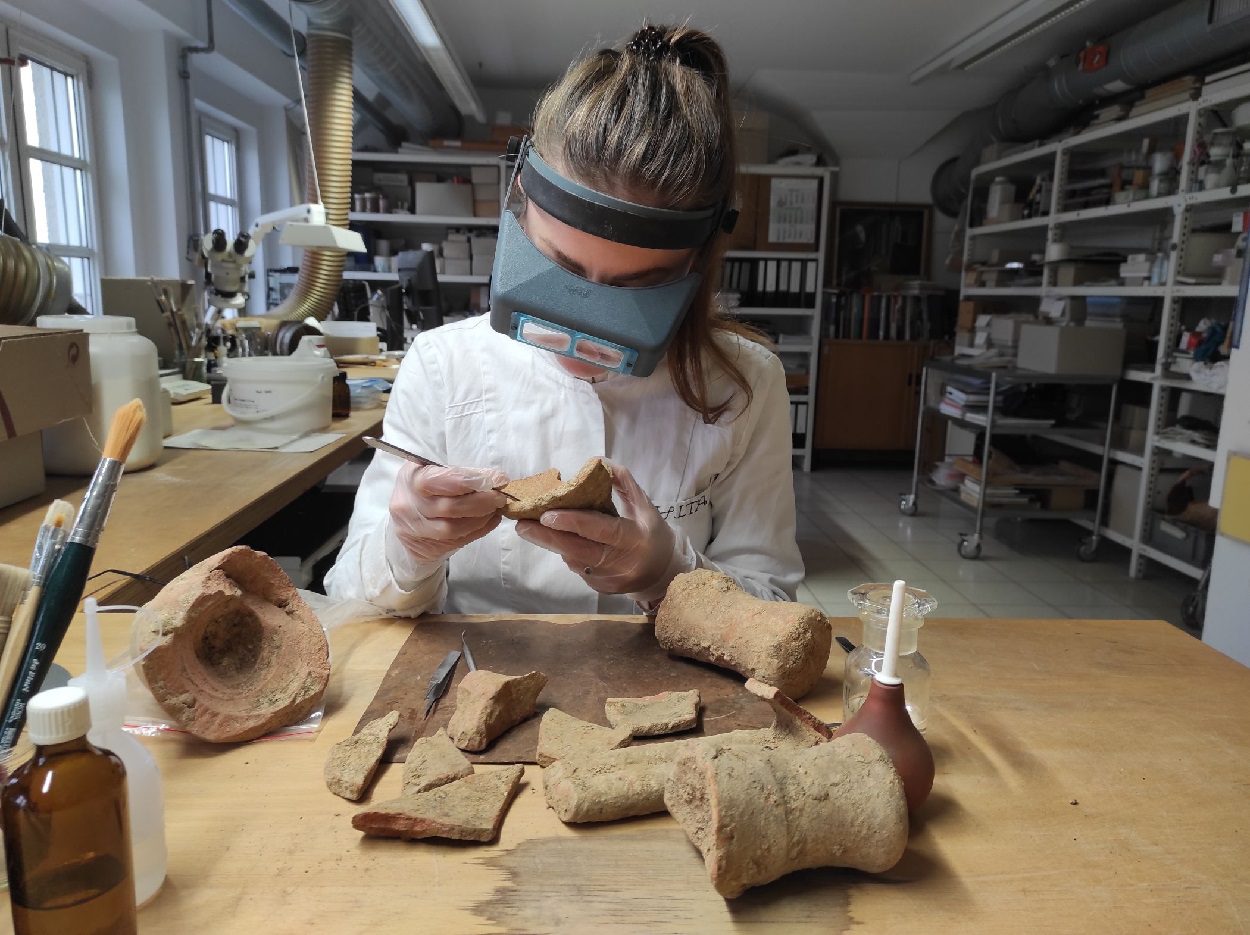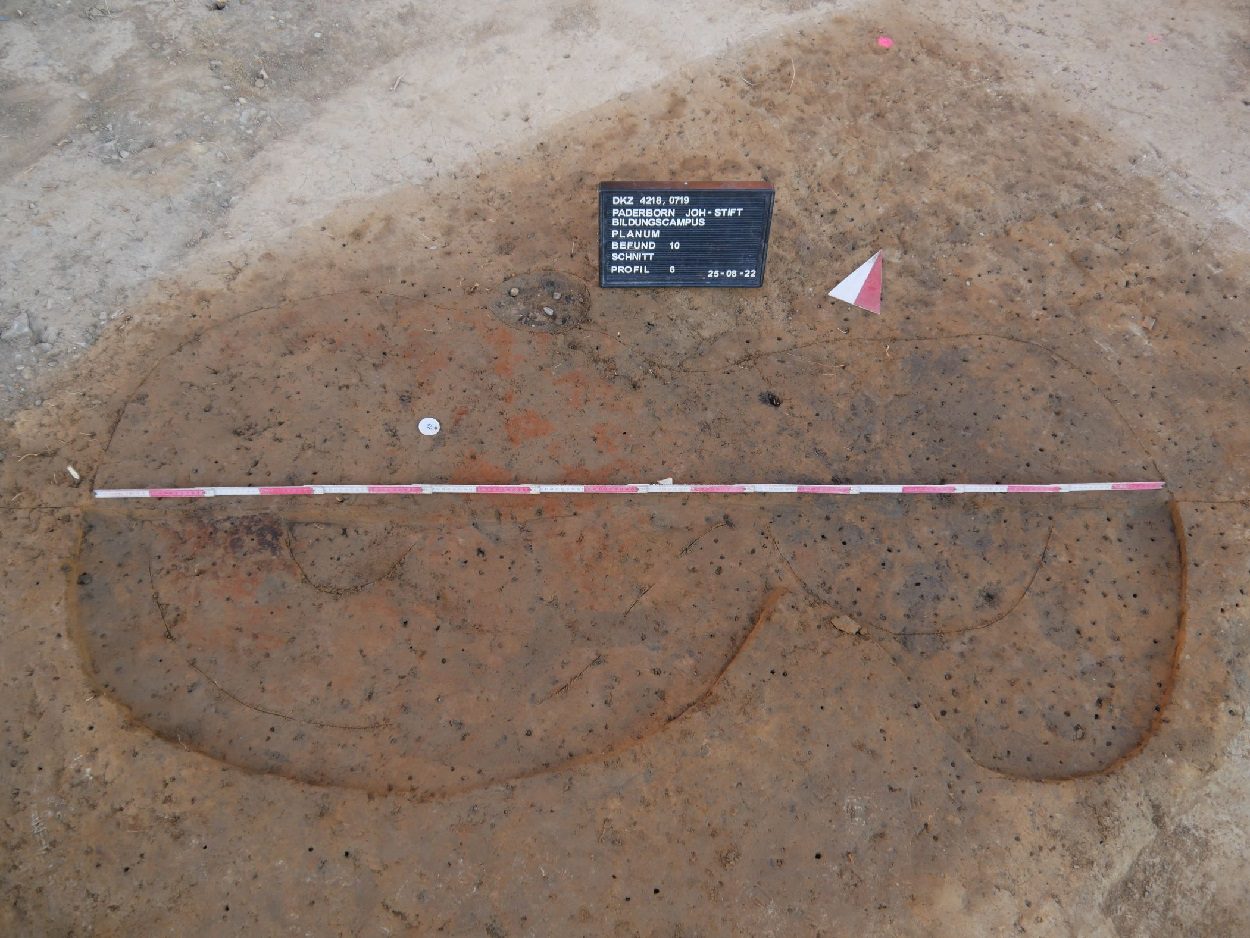Archaeologists have found evidence of a Roman marching camp in Paderborn on the eastern North Rhine-Westphalia, Germany.
Excavations have been conducted by the Regional Association of Westphalia-Lippe (LWL) prior to the construction of a new educational campus at the St. Johannisstift Hospital.
Archaeologists have found fragments of several different Roman wine amphorae, in additional to two field ovens from over 2,000-years-ago.
Paderborn was founded as a bishopric by Charlemagne in AD 795. According to the researchers, the discovery is the first sign of Roman military activity found in the Paderborn area.
The camp would have been constructed on a raised flat hill at the St. Johannisstift Hospital site, likely resembling other typical marching camps with of a polygonal area surrounded by an earth wall with a V-shaped ditch in front.
“Amphora finds like those found in Paderborn have so far only come to light in military camps such as Haltern am See or Bergkamen-Oberaden. The fact that amphorae have now been found in the city of Paderborn is outstanding,” says Prof. Dr. Michael M, Director of LWL Archaeology for Westphalia.

The field ovens were built by constructing a pit up to 60-80 cm’s deep in the shape of a figure of eight. Generally, field ovens were only built in temporary marching camps, used for baking bread in between marches during campaigns.
Various charcoal samples were taken from the ovens and sent to the University of Kiel for Carbon-14 dating. The results places the ovens during the time of the Augustan campaigns in Germania around 12 BC. The campaigns were a series of conflicts between the Germanic tribes and the Roman Empire over expanding territory.
Header Image Credit : EggensteinExca/ R. Sweet





